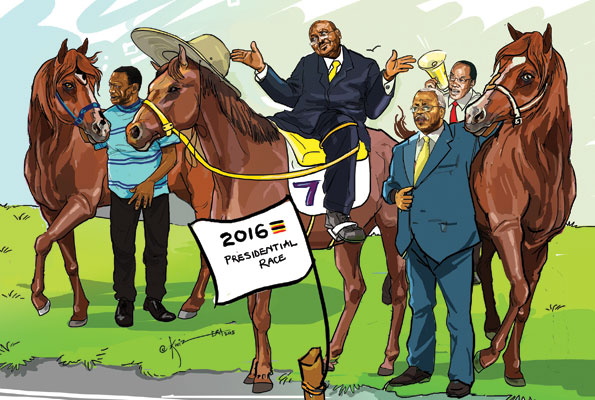
Civil Society Organizations (CSOs) have turned the blame on multiparty political system for the ‘crumbling’ democratic governance in Uganda.
In 2005, the National Resistance Movement (NRM) government restored multiparty politics through a referendum. Political parties had been banned from competing in elections for nearly 20 years in order to curb sectarian tensions, but when President Yoweri Museveni came to power in 1986, he instituted the non-party ‘Movement’ system of government.
However, about 13years after its restoration, human rights defenders have come out to blame political parties for crippling democracy in the country by usurping voices of the majority through their selfish interests.
This was revealed during the Civil Society debate held at parliament. The debate under the theme, “Voice of the people, reflection of the 10th parliament” is one of the activities of the ongoing Annual Parliament Week that is running from January 21 to January 25, 2018.
“One way of aggregating interests is through political parties; they have a number of ideas, philosophers and they are used as vehicles to come to parliament. But remember an MP represents several people in the constituency. However, when they [MPs] come to parliament whom do they represent? Whose voice takes precedence? Is it the voice of the constituency or political parties? More often the MPs side with the voices of their political parties,” political scientist Gerald Kagambirwe Karyeija said.
Karyeija added that it is wrong to settle disturbing questions through numbers and persuasion rather than the voices of the voters.
“Being a multiparty democracy, we have problems of falling on iron law of oligarchy because as political parties become organized, few people become dominant in decision making and this explains why MPs fall for the views of the party rather than their constituents. This iron law of oligarchy undermines democracy,” Karyeija added.
He added that whereas MPs go for consultations and surveys, they need to be sensitized and educated on the minimum criteria to decide the voice of the people.
Dr. Margaret Ssekajja, a human rights defender and former chairperson of the Uganda Human Rights Commission chairperson in her speech also emphasized on the negative impact of political party system saying that parties have denied MPs their freedom of expression.
“Do our MPs really enjoy freedom of expression? We see them being suspended from political parties from carrying views contrary to the party. They should be protected from this kind of intimidation. MPs should enjoy freedom of expression,” Ssekajja said.
Francis Kimara, President of the Uganda Law Society (ULS) said that it’s unfortunate that MPs have given away their voices to the caucuses.
“Parliament has sold their voices to the caucus because whatever happens in the caucus is said to have been done for or in the interests of voices of people of Uganda,” Kimara said.
On the other hand, Ssekajja also reminded Parliament of their primary responsible to safeguard the constitution.
“Parliament’s primary role is to safeguard the constitution beyond individual reach to amend it. Therefore, this Constitution should not be freely and regularly amended to suit the interests of a few people like we have witnessed it,” Ssekajja said.
She however, appreciated the importance of parliament and urged that MPs should be availed with sufficient resources and knowledge to do their work.
Lawyer and policy analyst Godber Tumushabe asked for the trimming of the size of parliament to allow MPs to legislate effectively. He also decried the recent Constitution Amendment Bill (No.2), 2017 that saw the removal of age limit and extension of tenure for political leaders. He also advised Parliament to boost its PR if it’s to redeem respect from people.
